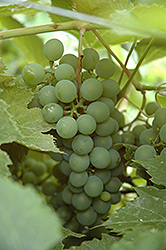


| Phone: |
| 613-599-3419 |
| Email: |
| info@makeitgreen.ca | Location: |
| 5200 Flewellyn Rd. Stittsville, Ontario
Need Directions? Click for map |
Welcome to our plant search tool. This database contains many of the thousands of plants that we carry. There are some notable exceptions. Hundreds of new perennials come out every year and Make It Green has been a leader in making them available to you. Eventually the recent introductions will make it to our plant search tool but every year there will be a lag between our in-store plant selection and this search tool. Unfortunately this search tool can't cover everything that we will carry this year. We also carry over 100 varieties of rare and unusual evergreens and over 100 varieties of hard-to-find shrubs many of which are not in the plant search. Click on the Plant List button for a list of nearly all the woody plants (trees, shrubs and evergreens) that we have ordered or already have in stock for this coming year.
* This is a "special order" plant - contact store for details
Height: 20 feet
Spread: 24 inches
Sunlight:
![]()
Hardiness Zone: 4a
Description:
An excellent quality hardy grape, selected for its sweet green fruit in fall, excellent for eating fresh, juices or jellies; a vigorous and trailing vine, use as a screen for arbors or winding along fences, requires regular pruning and full sun
Edible Qualities
Kay Gray Grape is a woody vine that is typically grown for its edible qualities. It produces large clusters of light green round fruit with gray overtones which are usually ready for picking from late summer to early fall. The fruits have a sweet taste and a juicy texture.
The fruit are most often used in the following ways:
- Fresh Eating
- Preserves
- Juice-Making
- Wine-Making
Features & Attributes
Kay Gray Grape has rich green deciduous foliage on a plant with a spreading habit of growth. The lobed leaves turn yellow in fall. It produces abundant clusters of light green grapes with gray overtones from late summer to early fall.
This is a dense multi-stemmed deciduous woody vine with a spreading, ground-hugging habit of growth. Its relatively coarse texture can be used to stand it apart from other landscape plants with finer foliage. This is a high maintenance plant that will require regular care and upkeep, and requires a special pruning regimen to reliably produce fruit; consult a specific reference guide or contact the store for proper pruning techniques. It is a good choice for attracting birds to your yard. Gardeners should be aware of the following characteristic(s) that may warrant special consideration;
- Spreading
Aside from its primary use as an edible, Kay Gray Grape is sutiable for the following landscape applications;
- Hedges/Screening
- General Garden Use
- Orchard/Edible Landscaping
Planting & Growing
Kay Gray Grape will grow to be about 20 feet tall at maturity, with a spread of 24 inches. As a climbing vine, it should be planted next to a fence, trellis or other rigid structure where it can be trained to grow upwards on it. It grows at a fast rate, and under ideal conditions can be expected to live for approximately 20 years. This is a self-pollinating variety, so it doesn't require a second plant nearby to set fruit.
This woody vine is typically grown in a designated area of the yard because of its mature size and spread. It should only be grown in full sunlight. It prefers to grow in average to moist conditions, and shouldn't be allowed to dry out. It is not particular as to soil type or pH. It is somewhat tolerant of urban pollution. Consider applying a thick mulch around the root zone in winter to protect it in exposed locations or colder microclimates. This particular variety is an interspecific hybrid.
* This is a "special order" plant - contact store for details


